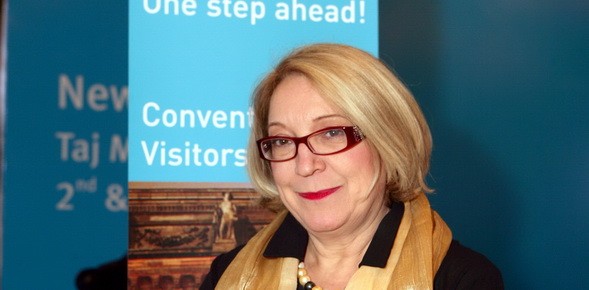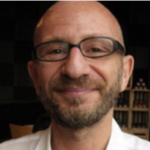Paris Convention and Visitors Bureau sent last March a team of 20 travel specialists including hoteliers and entertainment venues a special workshop to promote the French capital in Bangkok, Kuala Lumpur and Jakarta. An unconventional move as most European destinations favour above all marketing actions in China, India or Japan when thinking over Asia. Patricia Barthélemy, Leisure Marketing Manager, tells why Paris now targets Southeast Asian countries.
“We like to work out strategies for complex markets in Asia”
TravelDailyNews : Why did Paris decide to visit outbound markets in Thailand, Malaysia and Indonesia?
Patricia Barthélemy : While we continue to be present in priority markets such as the USA, the Middle East or China and Japan, we try also to identify secondary outbound markets which offer tremendous growth opportunities. This is a strategy we follow for a long time as we always try to work ahead to anticipate future trends. We started to venture for example into China some 15 years ago at a time where few countries dared to prospect this market.
Our task is to prepare Paris tourism trends far ahead, a way to anticipate travel movements maybe in ten years. And we found that it was the right time for us to go to Bangkok, Kuala Lumpur and Jakarta. In fact, we also responded to a request from our private tourism partners. And I must say that the welcome was enthusiastic as many local travel and tourism suppliers in the three countries were favourably surprised by our presence.
TDN : Is it the right time today to visit these countries?
P.B.: Absolutely! These countries are embarked in a growth drive which is likely to last for long. And we have seen from airlines a renewed interest to serve this markets. Of course Bangkok and Kuala Lumpur have been for many years linked to Paris by non-stop flights. The arrival of Air France to Kuala Lumpur last year – with an increase in frequencies this summer- and its next launch of direct flights to Jakarta show that we are doing promotion over Paris at the right time.
TDN : Why choosing then Bangkok, Kuala Lumpur and Jakarta and not adding Singapore or Manila?
P.B.: Above all, our approach to new markets is justified by the necessity to foster countries with a defined potential but also with a rather complex approach. We do not have sales missions on our own in Singapore for example as we consider it as a rather easy market to target. It is well connected to Paris with non-stop flights, Singaporean do not need visa and we can easily communicate in English. For the Philippines, we have also a demand from our partners and we start to consider to include Manila in our next workshop. Possibly in 2015. Our approach to Thailand, Malaysia and Indonesia help us and our partners to embrace the strengths of each market, their request, their specificities and consequently better understand how we can promote Paris and what type of service we can offer. Such as accommodating religious requirements for example.
TDN : What kind of request do you receive from these various countries?
P.B.: We are lucky that Paris benefits from such a strong image. Thailand was rather easy to accommodate with no real request. Indonesians were more concerned about food while all countries wanted to know about our English skills. We reassure them on both aspects that young generations today mostly master English properly while we offer a great variety of food. In fact, we see a huge interest from all Asian travellers for high gastronomy with star-rated restaurants very high on their wish list.
TDN : What about safety in Paris which stirred up some comments from China authorities a few months ago?
P.B.: We did not get any enquiry from the three countries we visited. Meanwhile, safety of tourists is of utmost importance of course and we work closely with the Regional Police Department as well as the Municipal and National police forces. A booklet with tips in five different languages about safety tips are now distributed everywhere including telephone numbers. Many police stations have now multilingual staff or are equipped with a translation program. We reinforce police patrols in major tourist sites such as around the Eiffel Tower or the Louvre area. And we work with tour operators to identify where tourist groups are located in outer districts.
TDN : What are your main communication themes?
P.B.: We just communicate on anything that Paris offers of course, from shopping of course to gastronomy or also culture and increasingly special events such as “Paris Beach” in summer or “Paris White Nights”.
TDN : How many tourists are coming today from Asia including Southeast Asia?
P.B.: if we look at data from the region Ile de France where Paris is located, Chinese travellers are the number one among Asians with up to 800,000 travellers. However, if we only consider Chinese with the city boundaries, they just come after Japanese. Japan travellers top our Asian arrivals at 600,000 followed by Chinese with 200,000 while Thailand, Malaysia and Indonesia generate together some 200,000 tourists per year.
Luc Citrinot a French national is a freelance journalist and consultant in tourism and air transport with over 20 years experience. Based in Paris and Bangkok, he works for various travel and air transport trade publications in Europe and Asia.




![[PR] PR_Ascott and Vimut Hospital_2024](https://www.traveldailynews.asia/wp-content/uploads/2024/04/PR-PR_Ascott-and-Vimut-Hospital_2024-400x265.jpg)



























































